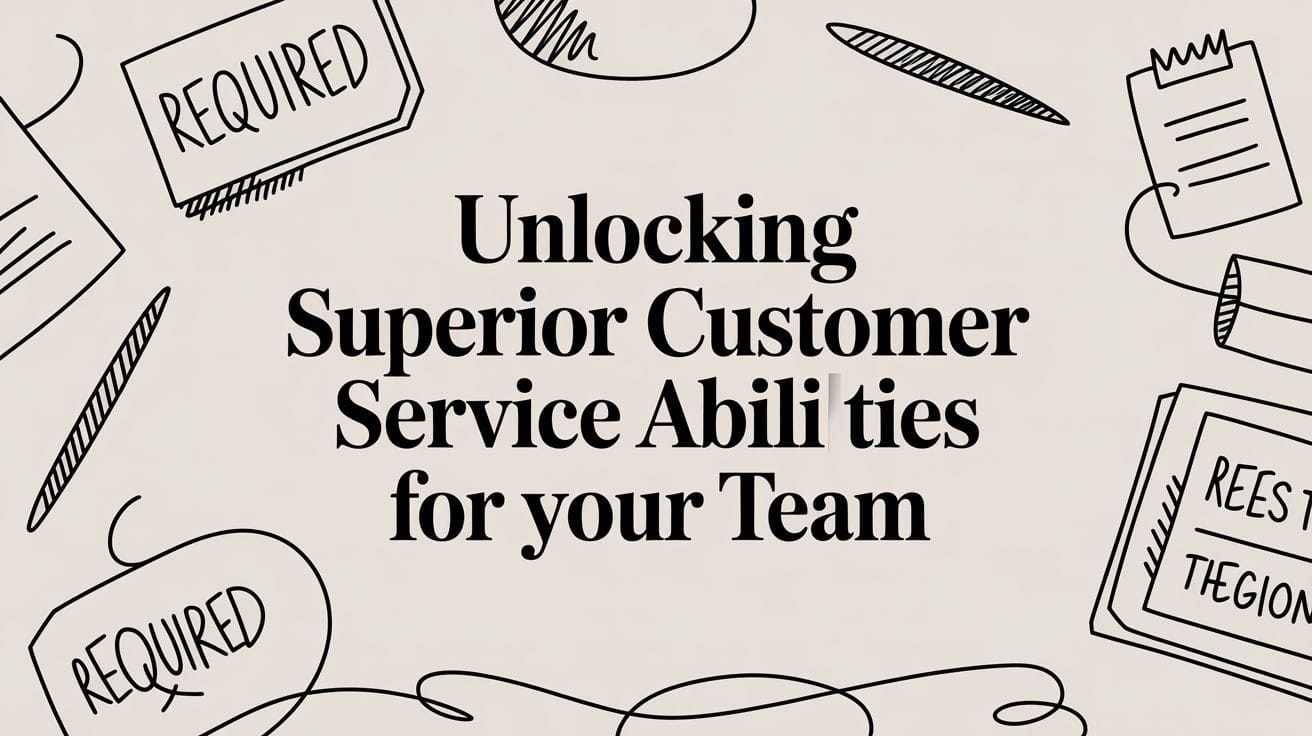In today's competitive marketplace, exceptional customer service is more than just a nicety; it is a critical component for sustaining and growing a successful business. Companies that prioritize exceptional customer service stand out, fostering loyalty and driving repeat business. In this guide, we will explore strategies to master customer service and achieve business success.
Understanding the Importance of Customer Service
Customer service establishes the cornerstone of customer relationships. It's not merely about resolving issues, but about delivering a consistently positive experience that exceeds expectations. When customers feel valued and understood, they are more likely to return and recommend the business to others, thereby increasing sales, enhancing brand reputation, and creating a competitive edge.
The Impact of Customer Satisfaction on Business
Customer satisfaction is directly linked to business performance metrics such as customer retention, profitability, and market share. Satisfied customers are not only more likely to repurchase but also to share their experiences, generating organic growth through word-of-mouth marketing. Therefore, investing in customer service is an investment in the future of the company.

Key Elements of Exceptional Customer Service
Personalization
Today's customers expect personalized service that caters to their specific needs and preferences. Businesses can achieve this by leveraging customer data to tailor interactions and offer solutions that are relevant to each individual, enhancing their experience and fostering loyalty.
Effective Communication
Listening actively and responding thoughtfully are fundamental to successful service interactions. Clear, respectful, and timely communication can prevent misunderstandings, build trust, and reinforce the customer’s confidence in the business's capability to meet their needs.
Empowerment and Training
Empowering employees to make decisions and providing them with comprehensive training ensures they can handle various situations effectively. A knowledgeable and confident team can address customer concerns promptly, demonstrating the company's commitment to service excellence.
Implementing a Customer-Centric Culture
Developing a customer-centric culture involves embedding customer service values into the organizational ethos. This means aligning business processes, resources, and employee behaviors to focus on customer satisfaction. Leaders can foster this culture by modeling exemplary service behavior and recognizing staff contributions toward customer satisfaction.
Continuous Feedback and Improvement
Regularly soliciting and acting on customer feedback is essential for improvement. Implement feedback loops to collect insights into customer experiences, then use this data to refine service strategies and address any gaps. This iterative process not only enhances service quality but also demonstrates the company’s commitment to customer opinions.
Leveraging Technology for Service Excellence
Embracing technology can greatly enhance customer service delivery. Technologies like CRM systems, AI chatbots, and data analytics can streamline service interactions, provide insights into customer behaviors, and reduce response times. The right technology solutions enable businesses to provide more responsive and personalized service, meeting and exceeding customer expectations.
FAQs
What is the role of leadership in customer service excellence ?
Leadership plays a pivotal role in setting the tone for customer service. Leaders must champion customer-centric values and ensure they permeate throughout the organization, supporting and empowering employees to prioritize customer satisfaction.
How can small businesses compete in customer service against larger companies ?
Small businesses can leverage their agility to offer personalized and flexible service that larger companies may struggle to provide. By focusing on building strong relationships and understanding individual customer needs, small businesses can create a significant competitive advantage.
How can technology improve customer service ?
Technology enhances customer service by automating routine tasks, providing real-time insights, and enabling faster, more accurate communication. Tools like customer relationship management systems and chatbots streamline service processes and allow for more personalized customer interactions.
What strategies can be used to handle negative customer feedback ?
To handle negative feedback, businesses should respond promptly, empathize with the customer’s concerns, and seek to resolve the issue. It's also important to use the feedback constructively to identify areas for improvement, demonstrating to customers that their opinions are valued and effect change.








